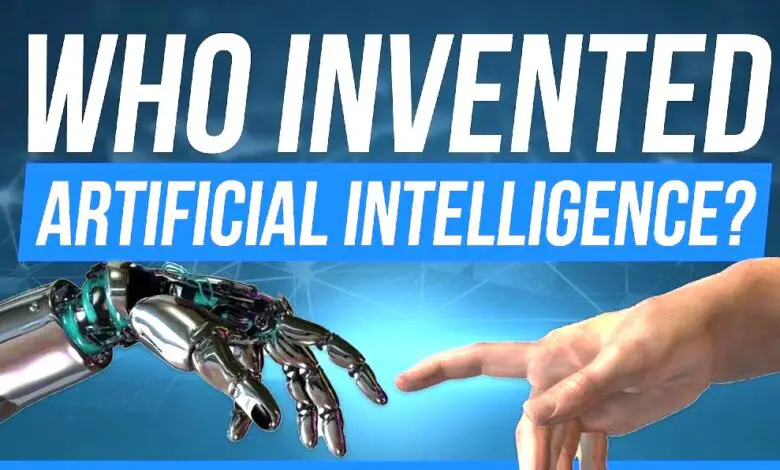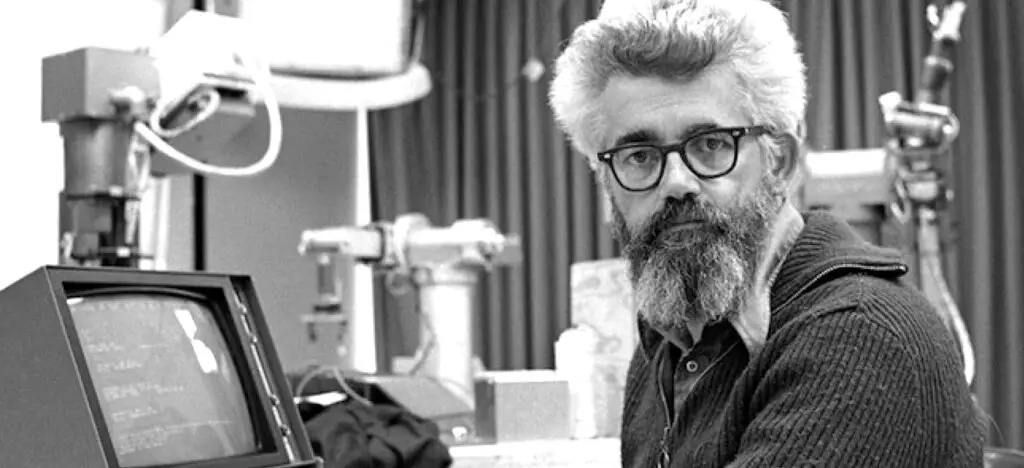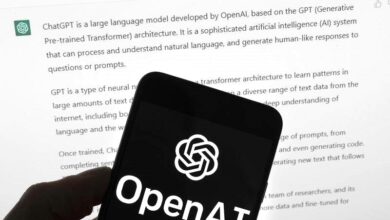AI’s Founding Fathers: Who Invented Artificial Intelligence and Shaped the Future?
The Enigmatic Origins of AI: Who Invented Artificial Intelligence

Invented Artificial Intelligence: In the ever-evolving world of technology, artificial intelligence (AI) stands out as one of the most revolutionary advancements of our time. From self-driving cars to virtual assistants, AI has woven itself into the fabric of our daily lives. But have you ever wondered who the masterminds behind this incredible innovation are? In this comprehensive article, we will delve deep into the history of AI, exploring the pioneers who invented AI and shaped the future of technology.

Who Invented AI?
Artificial intelligence, as we know it today, has a complex history with several visionaries contributing to its development. Let’s embark on a journey to uncover the brilliant minds behind the invention of AI.
Alan Turing – The Trailblazing Mathematician
Alan Turing, a British mathematician, is often regarded as one of the earliest pioneers of AI. His groundbreaking work during World War II on the Enigma code-cracking machine laid the foundation for machine learning and artificial intelligence. Turing’s concept of a “universal machine” was a precursor to the modern computer, and his Turing Test remains a fundamental benchmark in AI development.
John McCarthy – The Father of Invented Artificial Intelligence
John McCarthy, an American computer scientist, is often referred to as the “Father of AI.” In 1956, he organized the Dartmouth Conference, where the term “artificial intelligence” was first coined. McCarthy’s efforts in developing the Lisp programming language and his work on the creation of the AI programming language, coupled with his vision for AI research, were pivotal in the early AI landscape.
Marvin Minsky and Herbert Simon – Pioneers in Cognitive Science
Marvin Minsky and Herbert Simon, two brilliant minds from MIT, made significant contributions to AI by developing the concept of artificial neural networks. Their work on problem-solving and machine-learning algorithms opened up new avenues for AI research. Minsky’s book, “Perceptrons,” was instrumental in shaping the field of AI and neural networks.
The Connectionist Era – Geoffrey Hinton, Yann LeCun, and Yoshua Bengio
In more recent times, the resurgence of AI can be attributed to the work of Geoffrey Hinton, Yann LeCun, and Yoshua Bengio. Their contributions to deep learning and neural networks have propelled AI into the mainstream. Deep learning models, such as convolutional neural networks (CNNs) and recurrent neural networks (RNNs), have revolutionized image recognition, natural language processing, and speech recognition.
The Evolution of Invented Artificial Intelligence
As we explore the pioneers of AI, it’s crucial to understand the evolution of this field. AI has undergone significant transformations over the decades, leading to its current prominence.
1950s-1960s Invented Artificial Intelligence:
The Birth of AI – During this period, AI was primarily focused on symbolic reasoning and rule-based systems. Early AI programs attempted to mimic human logic and decision-making.
1970s-1980s Invented Artificial Intelligence:
The AI Winter – AI research faced a slowdown due to high expectations and limited computational power. Funding dwindled, leading to what is known as the “AI winter.”
1990s-2000s Invented Artificial Intelligence:
Emergence of Machine Learning – Machine learning gained prominence as algorithms and computational resources improved. Expert systems and neural networks made a comeback.
2010s-Present Invented Artificial Intelligence:
The Deep Learning Revolution – Deep learning, powered by neural networks and massive datasets, has led to breakthroughs in speech recognition, computer vision, and natural language processing.
FAQs:
Q: Who is considered the Father of AI?
A: John McCarthy is often referred to as the Father of AI for coining the term and his pivotal role in AI development.
Q: What was Alan Turing’s contribution to AI?
A: Alan Turing laid the foundation for AI with his work on the Enigma code-cracking machine and the concept of a universal machine.
Q: What is the Turing Test?
A: The Turing Test is a measure of a machine’s ability to exhibit intelligent behavior equivalent to or indistinguishable from that of a human.
Q: How did Marvin Minsky and Herbert Simon contribute to AI?
A: They pioneered artificial neural networks, which are fundamental to modern AI. Minsky’s book “Perceptrons” was influential in the field.
Q: Who are the key figures in the recent resurgence of AI?
A: Geoffrey Hinton, Yann LeCun, and Yoshua Bengio played crucial roles in the resurgence of AI through their work on deep learning.
Q: What was the Dartmouth Conference, and why is it significant?
A: The Dartmouth Conference in 1956 marked the birth of AI as a field of study, where the term “artificial intelligence” was coined.
Q: How did AI research evolve during the AI winter?
A: AI research slowed down during the AI winter due to high expectations and limited funding, leading to a hiatus in progress.
Q: What are some applications of AI today?
A: AI is applied in various fields, including healthcare, finance, self-driving cars, virtual assistants, and more.
Q: What are the challenges in AI research today?
A: Challenges include ethical concerns, bias in algorithms, data privacy, and the need for transparency in AI systems.
Q: What role does deep learning play in modern AI?
A: Deep learning, powered by neural networks, has revolutionized AI by enabling breakthroughs in tasks like image recognition and natural language processing.
Conclusion
The journey to discover who invented AI is a testament to human ingenuity and innovation. From Alan Turing’s visionary concepts to the deep learning revolution led by Geoffrey Hinton and others, AI has come a long way. As we move forward, AI continues to shape our world, promising endless possibilities and challenges. The pioneers of AI have set the stage for an exciting future where the boundaries of human and artificial intelligence continue to blur.




